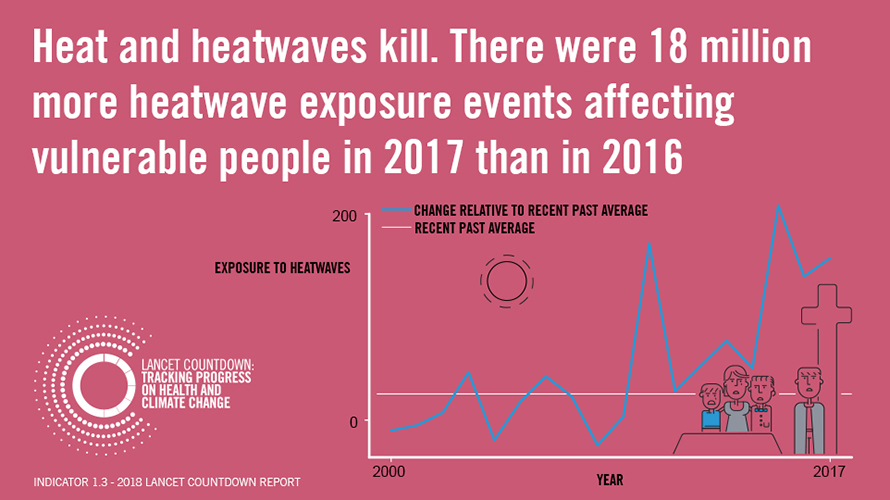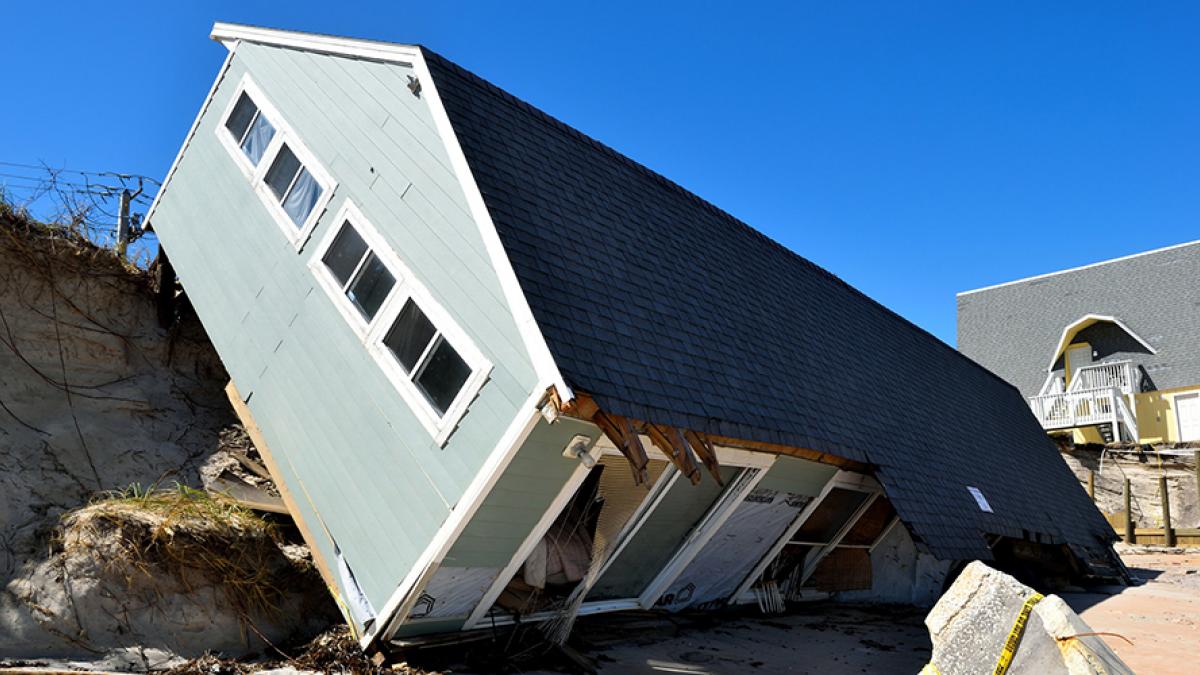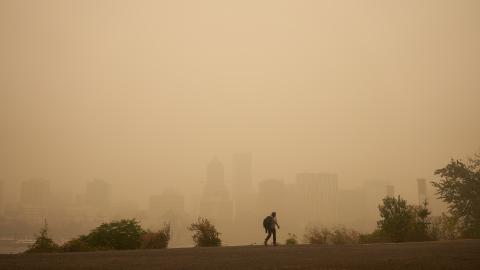US health care systems should extend their commitment to “do no harm” by ensuring that their own operations are powered by renewable energy, according to a new brief on climate change and health in the United States. The brief is co-authored by researchers in the University of Washington Department of Environmental & Occupational Health Sciences (DEOHS).
The brief highlights the important role of public health in training the next generation and educating the public on the health impacts of climate change.
“We need to do much more to prepare and respond and to support the health sector in adapting,” said Dr. Jeremy Hess, a DEOHS associate professor who is senior author of the brief. Hess is also associate professor of emergency medicine and global health at the UW Schools of Medicine and Public Health.
Hospitals and health systems exist solely to improve people’s health, yet paradoxically they are a top producer of greenhouse gases that exacerbate climate change.
“The health sector also needs to take additional leadership on reducing greenhouse gas emissions, which harm people’s health, and to continue pressing our government at every level to reduce emissions,” Hess said.
Calls for more funding, aggressive action

Other research partners include Harvard University, the World Bank, World Health Organization (WHO), University College London and Tsinghua University.
Researchers noted that substantially more funding is needed to support local efforts to adapt and enhance resilience.
However, Hess says adaptation alone, regardless of funding, won’t be enough.
“We’ll adapt to the things that we can, but without aggressive action to reduce emissions, there are likely to be impacts that we won’t be able to adapt to, and we’ll just have to reckon with,” he says. “We can install air conditioning in most homes, but we can’t stop trying to tend crops outside. We can’t move or harden all our critical seaside infrastructure. We can’t stop large population movements resulting from climate disasters. The list of losses that we’ll have trouble absorbing is long and upsetting.”
Tackling climate change as a public health issue
The 2018 report and U.S. brief come just days after a national climate assessment was issued by 13 federal U.S. agencies. It included a chapter on human health, which presented similarly stark warnings of the health impact of climate change for the country.
In 2017, there were 16 major natural disasters in the US that together cost more than $313 billion. Among the threats highlighted by the Lancet Countdown's US brief are heat and heat waves, as well as extreme weather events such as Hurricanes Harvey and Maria and the devastating wildfires on the West Coast. Climate change is also elevating the risk of vector-borne illnesses, such as Lyme disease and West Nile virus.
Hess said it is urgent that climate change be addressed as a public health issue now.
“Reducing greenhouse gas emissions by reducing our reliance on fossil fuels, switching to walking and biking when we go places and eating lower on the food chain all improve people’s health,” he said. “When these health benefits are factored in, mitigation more than pays for itself. And it reduces the damaging health effects of long-term climate change.”
 Health impacts are already happening
Health impacts are already happening
Hess was among dozens of doctors, academics and policy professionals who authored the global report, which explores 41 unique indicators that measure the health impacts of climate change and assess the world’s response.
The research shows that rising temperatures as a result of climate change are already affecting the health of populations around the world.
- 157 million more vulnerable people were subjected to a heat wave last year than in 2000, and 18 million more than in 2016.
- 153 billion hours of work were lost in 2017 due to extreme heat as a result of climate change.
- Heat greatly exacerbates urban air pollution, with 97 percent of cities in low- and middle- income countries not meeting WHO air quality guidelines.
- More than half of global cities surveyed expect climate change to seriously compromise public health infrastructure.
Signs of progress
“There is abundant evidence that communities are not prepared for the ongoing increases in the frequency, intensity and duration of heat waves,” says Kristie Ebi, DEOHS professor and professor of global health at the UW. She is an author of the Lancet Countdown report as well as the human health chapter of the national climate assessment.
“Actions are needed right now, matched with investments, such as implementing early-warning systems for heatwaves, including mapping vulnerable populations and providing interventions designed to increase resilience during hot weather," she said.
Despite a slow response to threat of climate change, experts also cited encouraging signs. Several sectors have seen the start of a low-carbon transition, according to the report. Authors emphasize that the nature and scale of the response to climate change will be the determining factor in shaping the health of nations for centuries to come.




